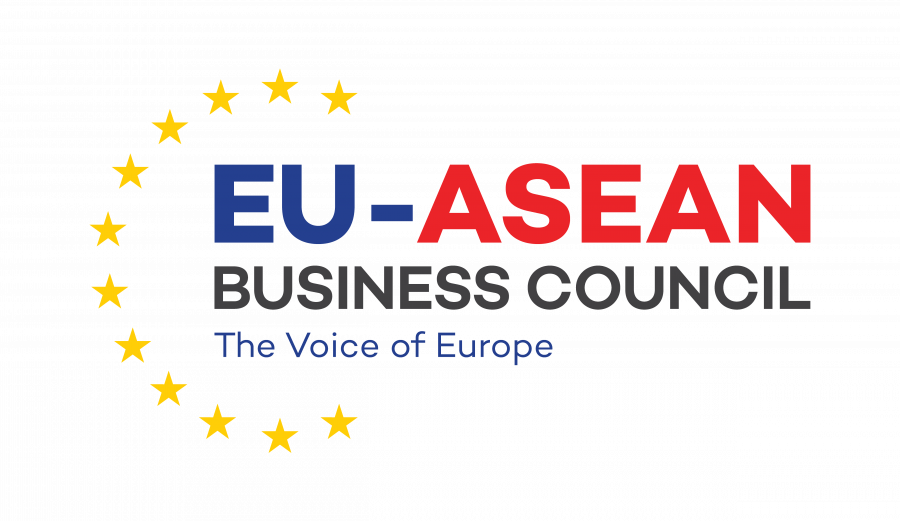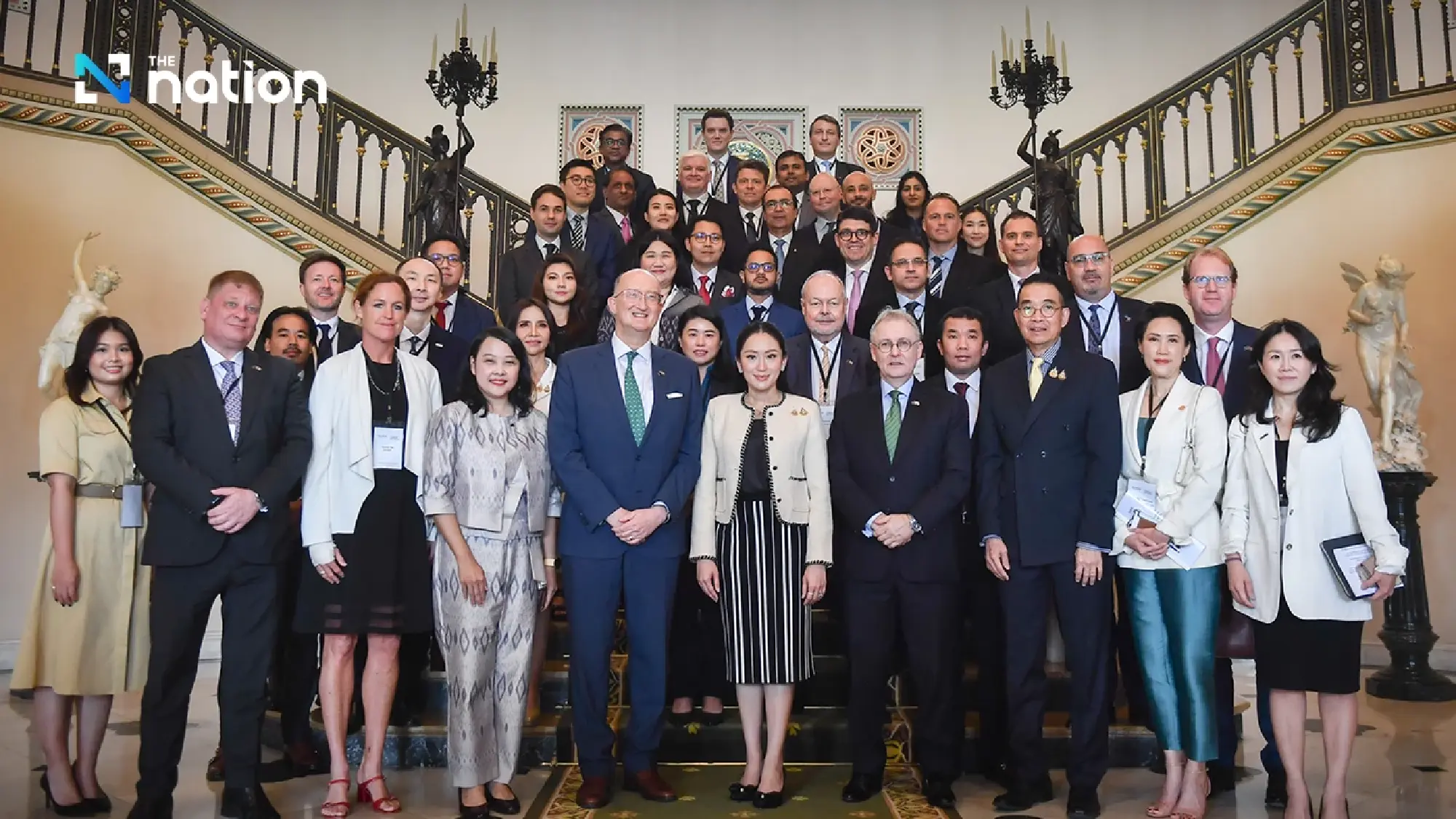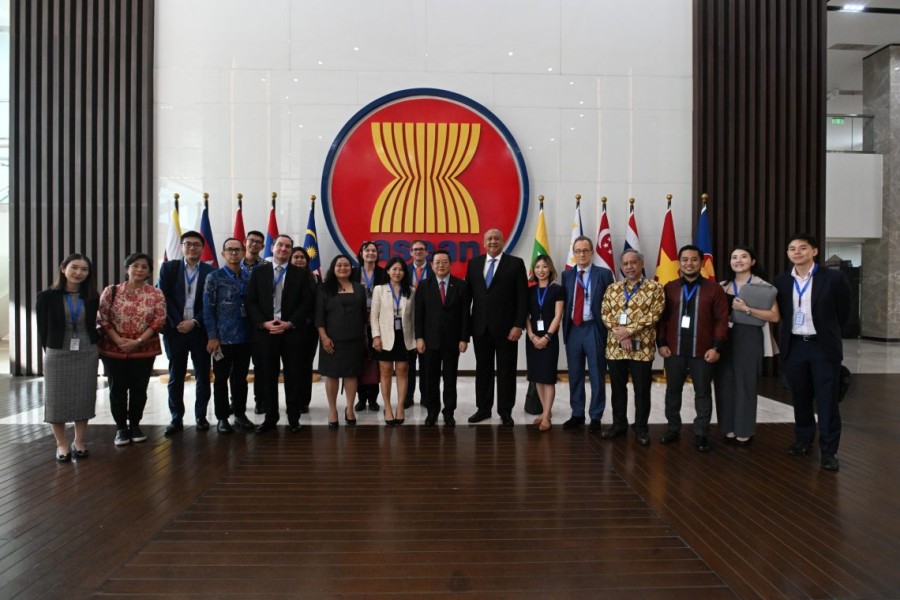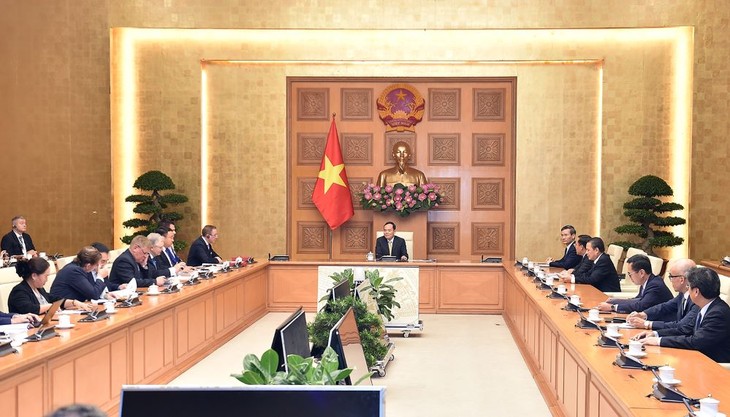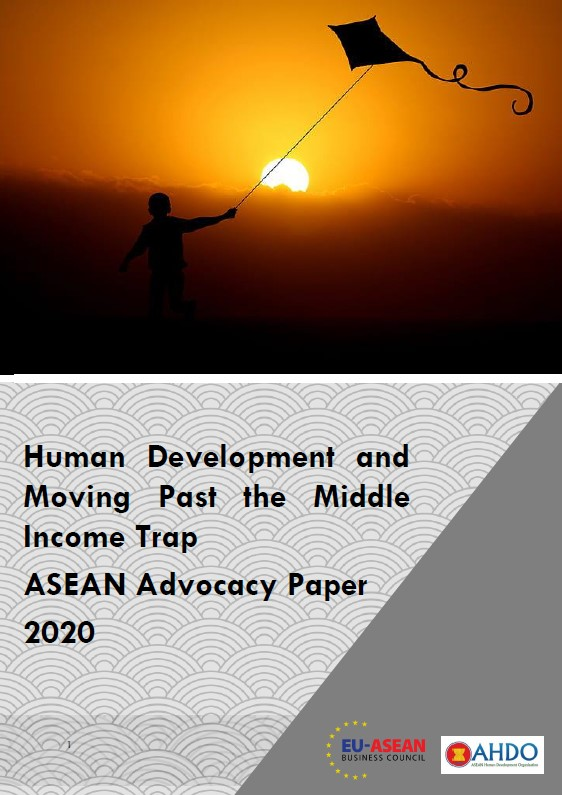
• Accelerate Stakeholder Cooperation for Development on Future Employability
• Companies to Challenge Barriers and Inward-Looking Policies
• Build Human Development Ecosystems
• Accelerate ASEAN-Wide Development for Management
• Ensure Human Development for All Workers
The EU-ASEAN Business Council (EU-ABC), and the ASEAN Human Development Organisation (AHDO), today published “Human Development and Moving Past the Middle Income Trap ASEAN”, a position paper outlining how strategies centred on human development can contribute to post-pandemic revival strategies. In line with the regional vision for a cohesive and responsive ASEAN, the EU-ABC positions human development as a catalyst for sustainable growth, providing recommendations that not only mitigate the socioeconomic damage caused by Covid-19, but also drive long-term growth by moving past the middle income trap.
As part of the study, a survey of 159 European and ASEAN companies was conducted. A key finding of the survey showed that businesses are not unanimously bullish (60% positive responses) about ASEAN’s middle-income countries becoming upper income economies. This is a worrying trend as it may mean that some countries in ASEAN may not be able to move up the value chain at the time when digitalisation and innovation are key to unlocking growth potential.
Donald Kanak, Chairman, EU-ABC and Chairman, Eastspring Investments, said, “ASEAN’s long term recovery from the current pandemic downturn will depend on its ability to equip its growing working population with the skills, knowledge and infrastructure to innovate and produce higher value-added products and services. That will require prioritising policies centred on human development, ever greater investment and collaboration of public and private sectors.”
For ASEAN in Covid-19 pandemic, inequality has now become a visible obstacle in moving beyond the middle-income trap. Social mobility and ASEAN’s growing middle class may well be at risk with an additional 11 million falling into poverty. ASEAN’s potential to take a leading role in the world depends directly on the quality of its human development. In the Asian Century, ASEAN’s challenge will be how to match the pace and level of human development other giant middle-income countries like China and India with growing competitive advantages and rising capabilities.
Dr Bob Aubrey, Founder and Strategic Advisor of AHDO said: The so-called “middle-income trap” in ASEAN shows that economic growth is not enough to create an advanced economy. What got us to where we are as a region will not get us to where we want to go, unless we meet our human development challenges. Companies have an essential role to play and this study shows how they plan to contribute to an advanced human development ecosystem in the region.
The EU-ABC’s position paper comes at a timely moment as ASEAN member states begin to discuss and implement various Covid-19 recovery strategies, creating a window of opportunity to recalibrate economies for sustainable growth. Sustainable growth which puts ASEAN’s citizens are the forefront, now, more than ever, needs to be featured more prominently, being vital to secure ASEAN’s long-term economic competitiveness and resilience.
END.
View the full list of EU-ABC publications here
